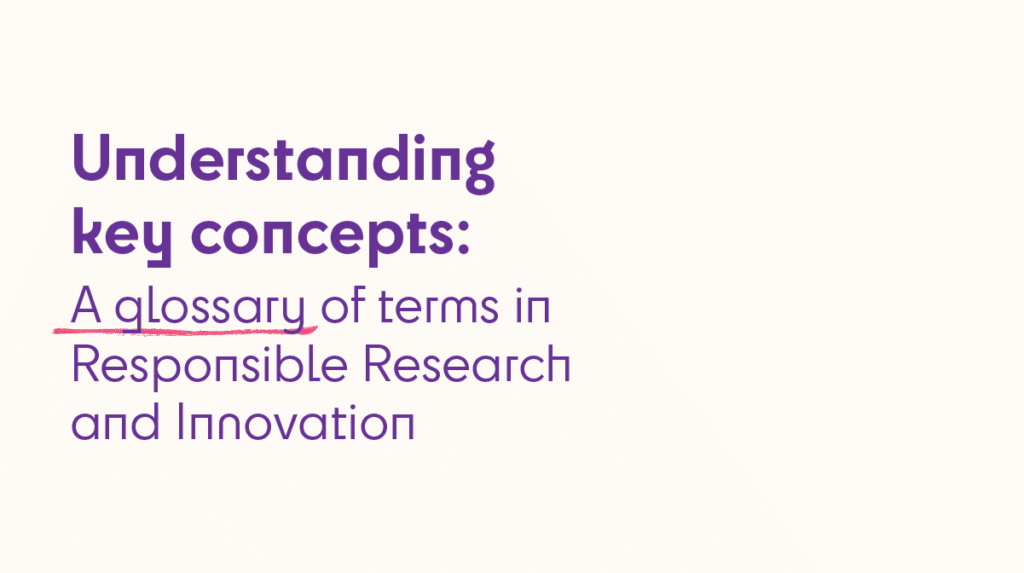Understanding key concepts: A glossary of terms in Responsible Research and Innovation
19th September 2024

In the context of Responsible Research and Innovation (RRI), understanding key terms is crucial to grasp the broader landscape of ethical, social, and environmental considerations in research and innovation.
Below is a glossary of essential terms related to RRI:
-
- Responsible Research and Innovation (RRI)
RRI integrates ethical, social, and environmental factors into research and innovation, encouraging researchers and organisations to involve citizens and stakeholders in decision-making. This approach focuses on societal alignment, inclusivity, transparency, and achieving socially beneficial outcomes - Social Innovation (SI)
Social Innovation addresses pressing societal challenges through novel ideas and creative solutions. It employs co-creation and participatory design to develop solutions rooted in user context, emphasising collaborative processes that tackle societal needs while fostering well-being - Human-Centred Design (HCD)
Human-Centred Design focuses on the needs of all participants within a problem domain. By prioritising user needs and perspectives, HCD aims to enhance the effectiveness and acceptance of design solutions through iterative refinement and continuous user feedback. - Engagement
Engagement involves active participation of end-users in decision-making processes. In designing solutions, engaging stakeholders like police officers or border guards ensures that their needs and insights are incorporated into impactful outcomes. - Community-Police-Security Triangle
This concept fosters collaboration between communities and police through active participation and trust-building initiatives. Police-led engagement strategies and positive community interactions enhance resilience and preparedness against security challenges. - Security in ‘Secure Societies’
Under the societal challenge of Secure Societies, the focus lies on developing technologies and solutions for law enforcement, crisis response, and resilient infrastructure. Topics include fighting crime, crisis response, and enhancing societal preparedness. - Radicalisation Interventions
Radicalisation interventions benefit from programs that provide positive alternatives, such as educational activities, mentoring, and community engagement through sports, arts, or politics. These initiatives aim to lower radicalization risks by offering social inclusion and meaningful self-expression.
- Responsible Research and Innovation (RRI)
Conclusion
These terms outline a framework where collaborative, ethical, and user-centred approaches drive innovation, addressing societal challenges effectively. By understanding and applying these concepts, organisations and researchers can achieve more inclusive, transparent, and socially impactful outcomes.
Share this post